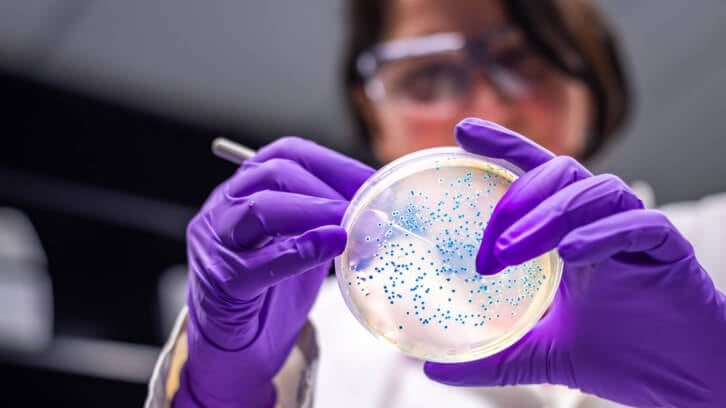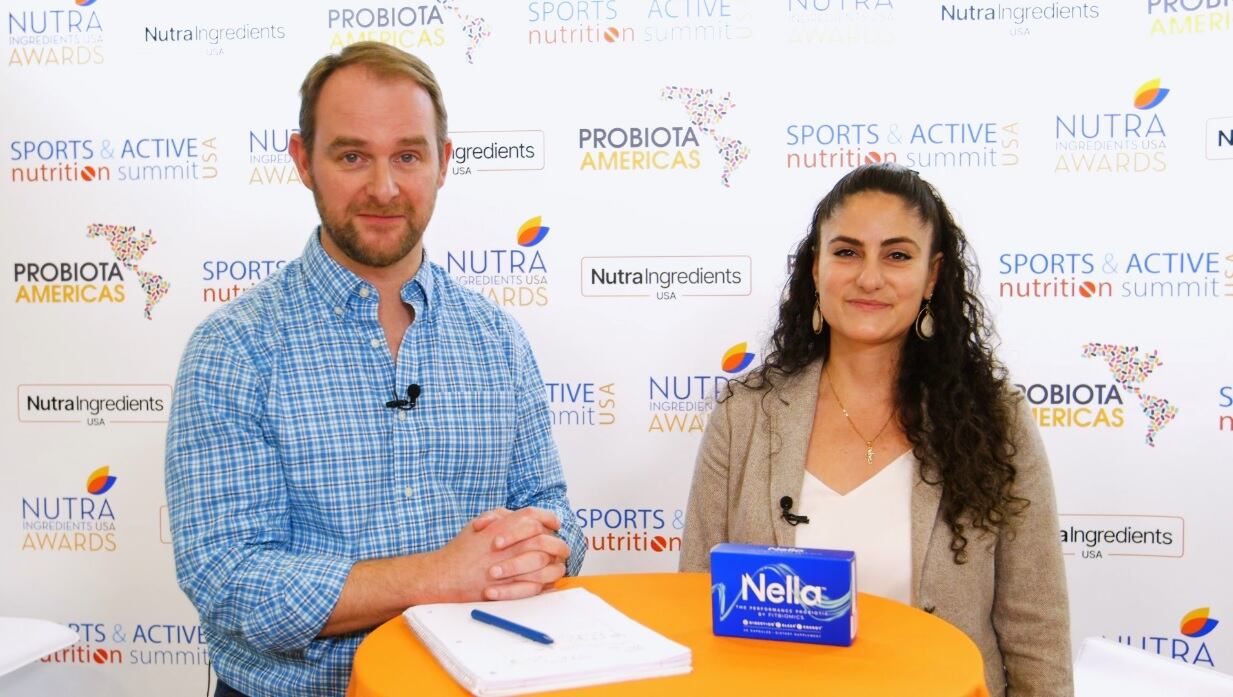First, it focuses on creating supplements with the “mycobiome” in mind. It’s a term coined by company cofounder Dr. Mahmoud Ghannoum, PhD, which states that fungal organisms are just as important to gut health as bacteria. Few organizations emphasize both.
Second, Biohm doesn’t only sell products. Its team uses the company’s bioinformatics capabilities to help other organizations create their own formulations.
Part supplier, part data wrangler, Biohm’s unique mix is what helped the company receive $7.5 million earlier this year to further develop its use of artificial intelligence, which Biohm is using to identify markers for different diseases and conditions.
However, AI is only as good as its data, says Afif Ghannoum, a biotechnology attorney turned Biohm cofounder and CEO. He’s also Mahmoud’s son.
“Candidly, the magic is not in the AI,” Afif said. “The magic is in the data. That's something we're very wary of when people start throwing around AI, because it seems like AI itself is becoming commoditized.”
Rather, he added that bioinformatics is what's key to the solutions they offer other organizations.
“We've worked with a number of big companies that actually collect microbiome data, but they don't have the bioinformatics pipeline that we do.”
That pipeline involves collecting information from stool samples sent to the company for microbiome analysis that Afif likens to the DNA process company 23andMe uses, but for the gut. Biohm’s bioinformaticians then explore the data to determine what imbalances exist between bacteria and fungi from the samples they’ve collected.
The company has access to more than 30,000 fungal strains to reference, which are located at Case Western Reserve University. There, Mahmoud is director of the Center for Medical Mycology.
In addition, Biohm harnesses metadata from a 50-point questionnaire gathered from individuals who submitted stool samples.
“Our [strength] is in our ability to take our data, take our metadata and then turn it into useful information, whether it’s for clinical trials or for formulation use,” Afif said.
In a previous interview with NutraIngredients-USA, Afif said Biohm’s proprietary DataMap platform allows it to cross analyze its microbiome dataset against its meta data points to create microbiome formulations that are “tightly targeted to specific consumer needs.”
The company doesn’t sell the data it collects or give access to it. Rather, it licenses its Internet Protocol (IP) that is based on the data.
That arrangement is what Biohm rolled out for its partnership with multinational food and nutrition giant ADM, as it helped the firm launch a new ingredient (Although the companies are not revealing what it is.). Biohm also collaborated with Life Extension, a company that addresses weight management, to expand its Florassist probiotics. Its goal is to identify gut dysbiosis using smart microbiome data.
These partnerships aren’t without critics. Afif says some in the industry question why Biohm would work with organizations viewed as potential competition.
“We really stick to our knitting, which is microbiome data and bioinformatics and understanding utility around the science,” he said. “They stick to their knitting, which is not only innovation but these unbelievable global distribution platforms.”
All this data doesn’t create an exact science when it comes to applying formulations, though. Nor should it, Afif added.
He calls the process “targeted” rather than personalized nutrition. There’s clustering within the microbiome for various populations, and for most people offering a formula along a spectrum will meet their microbiome needs, he said.
Decades of research
Although Biohm was established in 2017, the company has more than five decades of fungal research supporting it.
That’s approximately how long Biohm cofounder Dr. Mahmoud Ghannoum has studied the relationship between bacteria and fungi in the microbiome, although it was a niche discipline when he began his research. Few people valued or understood the role fungi played in the gut.
Then, medicine began to advance.
“We really did not have a lot of infections with fungi until the way we practiced medicine changed,” Mahmoud said. “For example, cancer or transplant patients are given immunosuppressive drugs. When you do this, you lower the immunity which gives the chance for fungi such as candida to overgrow [in the gut]. We started to be faced with it's not only bacteria, but it's fungi, too.”
To some degree, Candida was the canary in the coal mine for microbiome research.
Candida, which 70% of people have within their microbiome, normally stays at healthy levels. At low levels, it’s even beneficial for the body as it can breakdown some food which gives by products or nutrients to good bacteria.
However, Candida can become out of balance when disease strikes or when broad spectrum antibiotics are used.
Mahmoud studied this phenomenon early on during the HIV crisis, where he was funded by the National Institutes of Health (NIH) to explore complications from the disease, including oral thrush which patients often suffered.
“We showed that both bacteria and fungi are out of balance [in those cases],” he said. “The same was true for Crohn’s disease patients we observed. Digestive symptoms and inflammation showed they also have an imbalance.”
That research led to continued funding by the NIH to explore the intersection between fungi and biofilm, or digestive plaque within the body. Mahmoud found that bacteria and fungus come together to form these biofilms, which are implicated in diseases in the auditory, the cardiovascular, the digestive, the integumentary, the reproductive, the respiratory and the urinary system.
In 2000, the NIH released its opinion that scientists should continue to explore the connections between bacteria, fungi and gut health.
“This made me really very happy, because finally people figured out that both of them are important,” Mahmoud said. “I think in 10 years from now we hope to have translated a lot of products to help people.”
Retail
Helping people may already be happening.
Biohm’s products are carried in 10,000 stores. Most recently the company partnered with 2,500 Walmart locations, creating unique formulations for the retail giant. This includes Biohm’s digestive greens, which contains superfoods, vitamins and minerals, antioxidants, digestive enzymes and one billion CFUs of Biohm FX probiotics blend.
The company, which was a NutraIngredients-USA Award winner this year for its microbiome modulation Total Gut probiotic, is exploring the use of postbiotics in its products as well.
“Postbiotics are basically dead cells or the metabolites that they produce,” Mahmoud said. “This will allow us to avoid the use of live cells, which sometimes die as they go through the stomach. We hope to improve that.”
Mahmoud has published more than 500 studies and received a multitude of academic accolades over the years. When asked if working on Biohm is exciting because of the speed of innovation as compared to academia, Mahmoud answered simply.
“100%,” he said.



